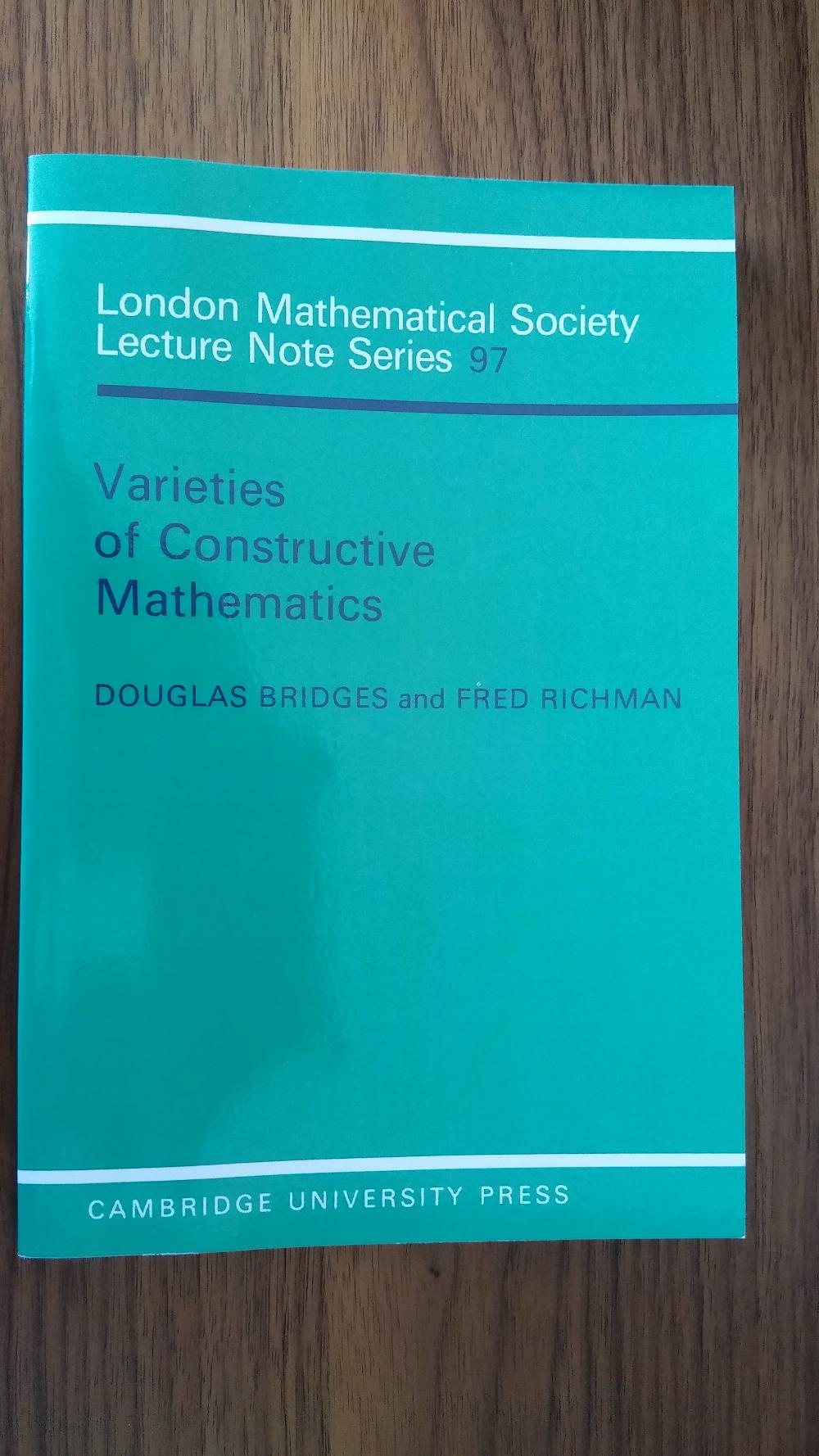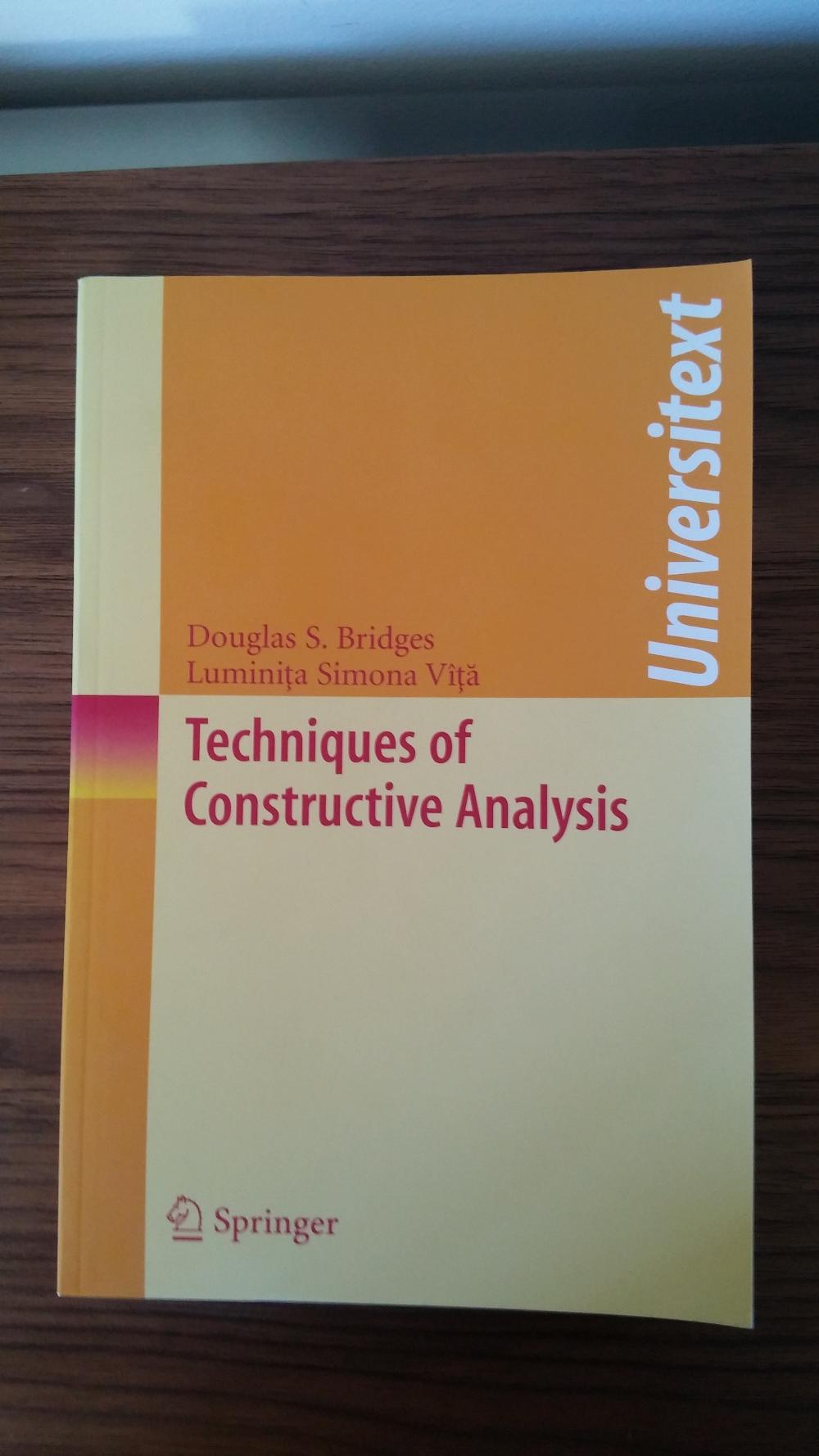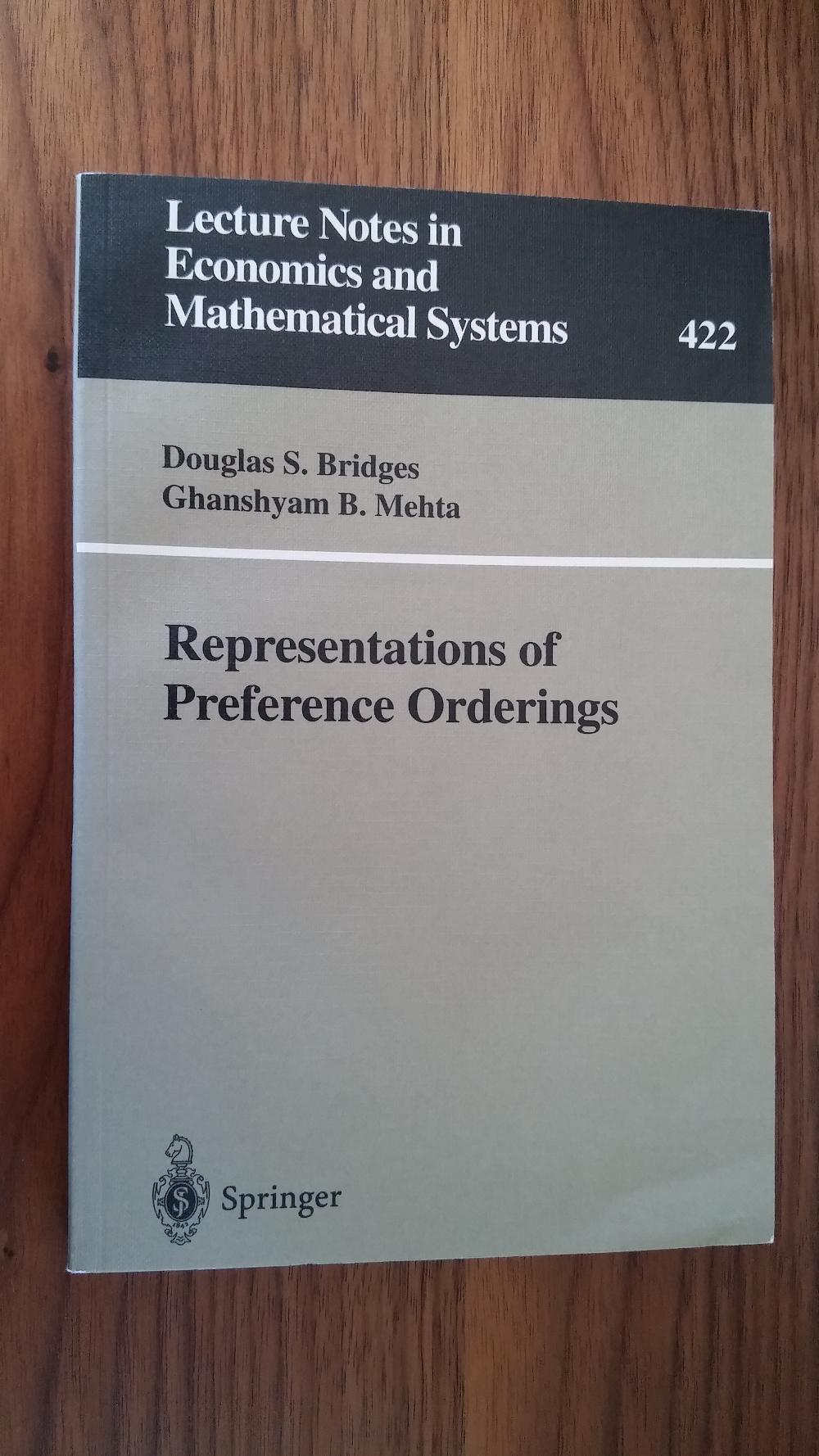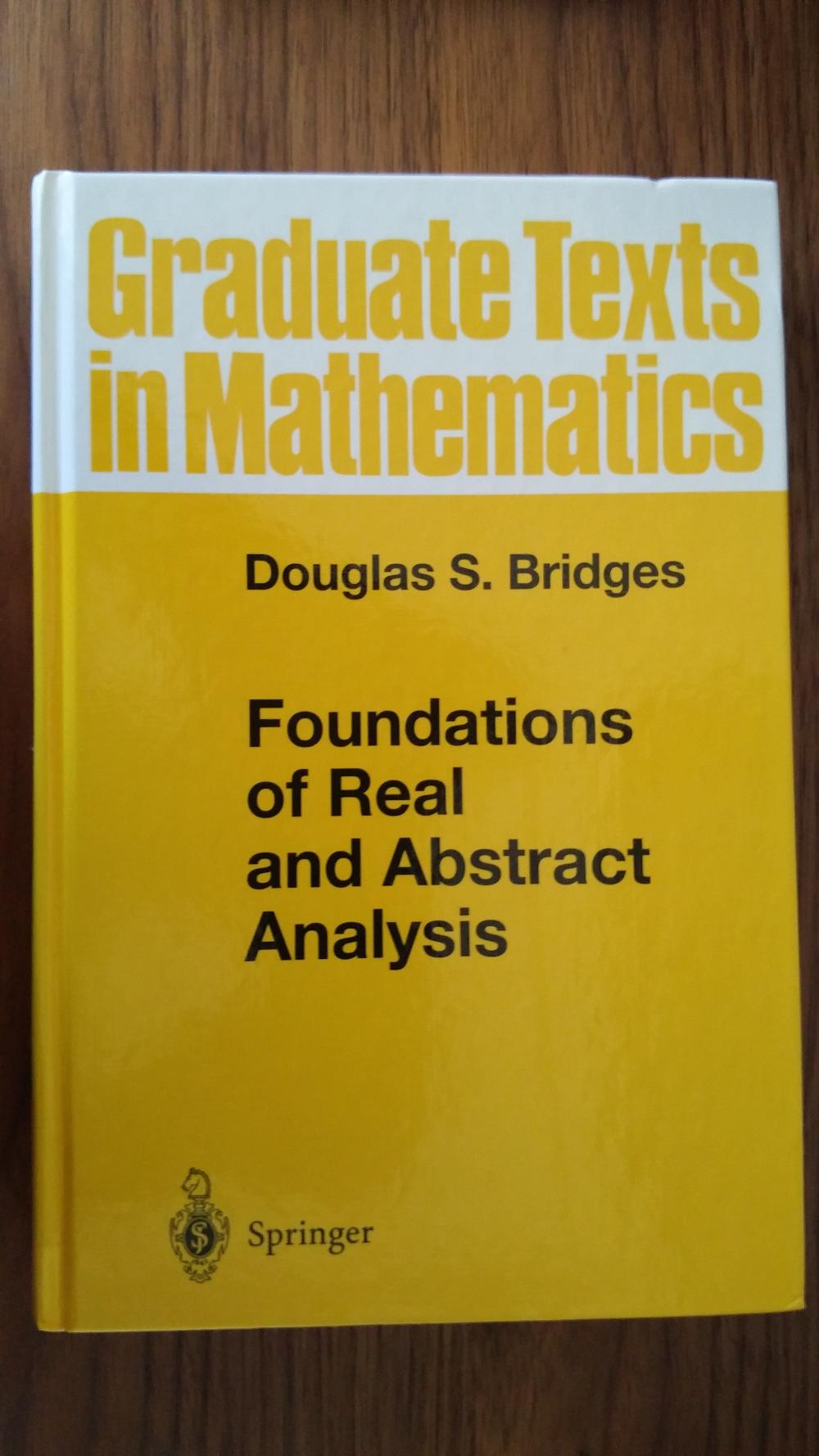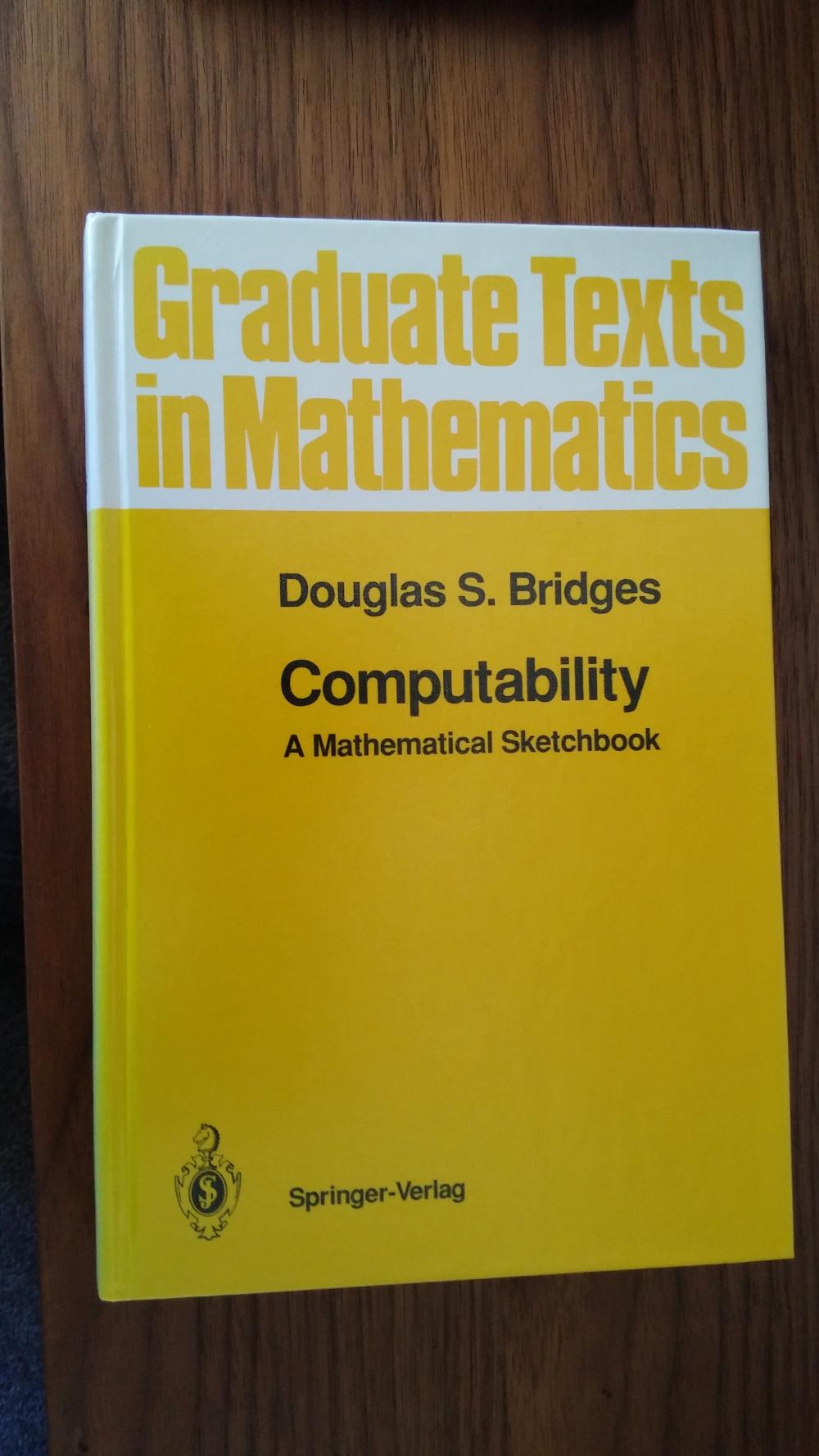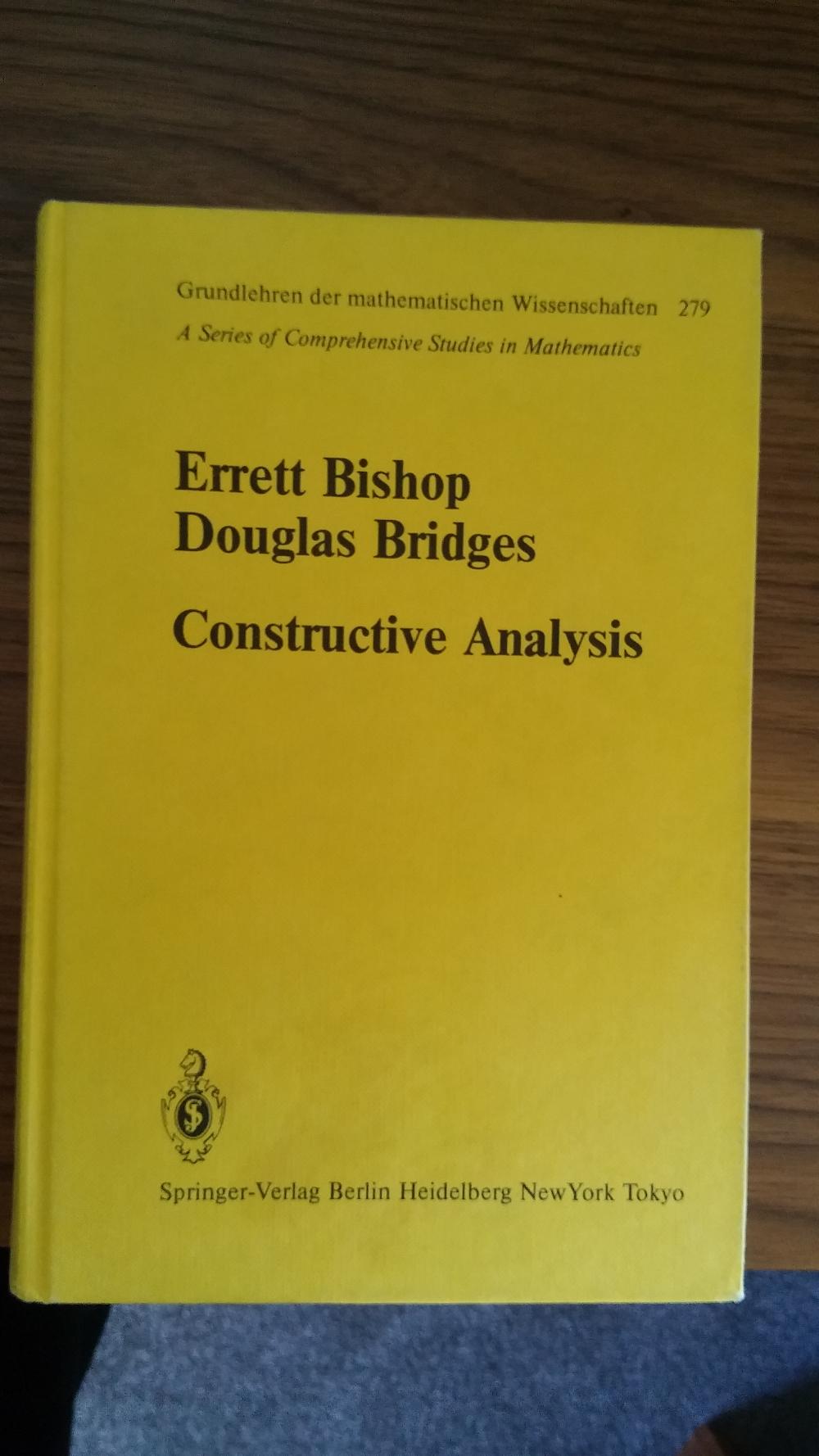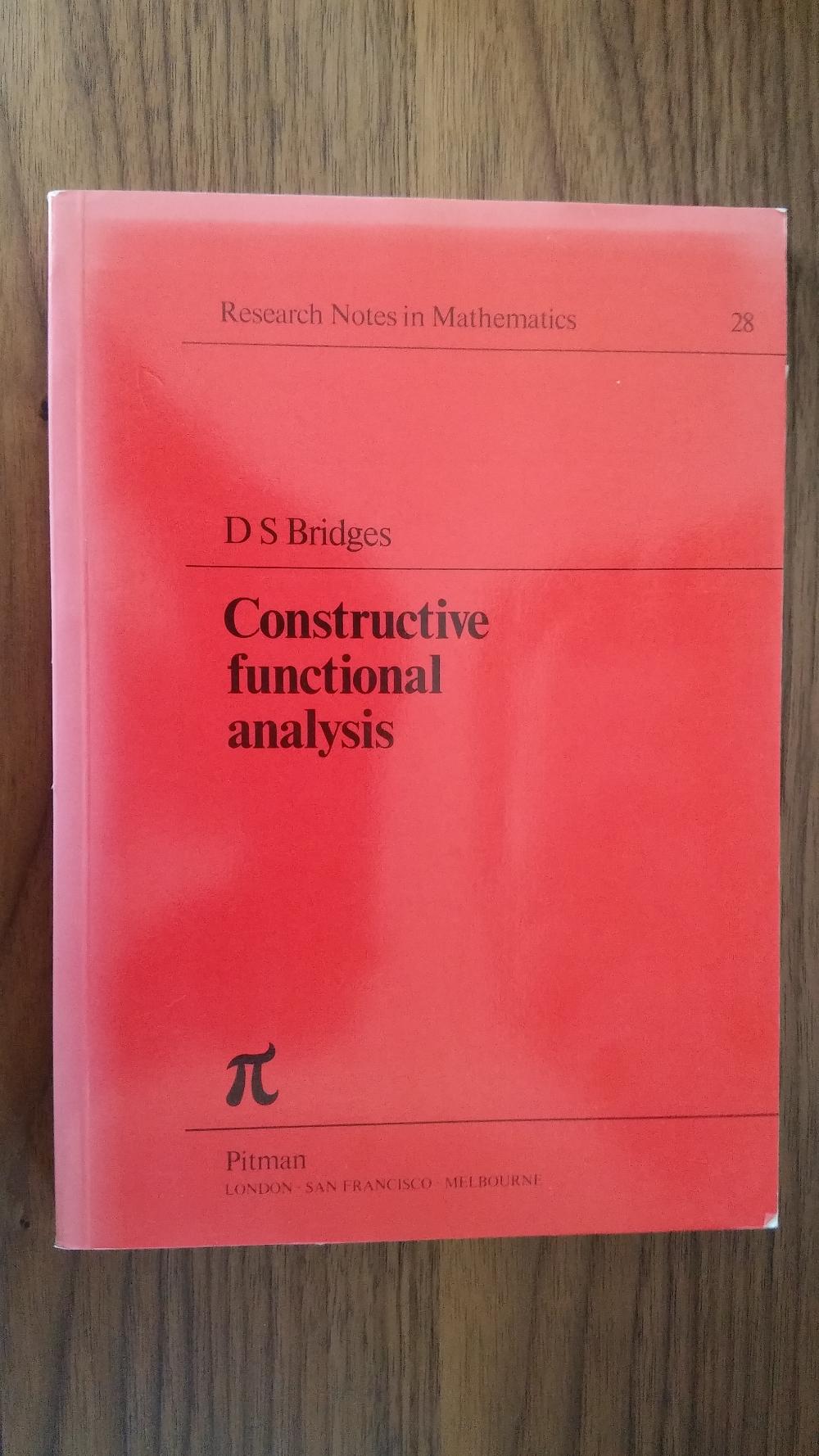Lecture notes on intuitionistic logic added 25 November 2022
The following sets of lecture notes are available to anyone who may wish to use them, provided their source is acknowledged.
The Lebesgue Integral via Riesz Sequences
These lectures on the Lebesgue on the real line R employ the method of F. Riesz , essentially a special case of the Daniell approach to abstract integration. This avoids the somewhat tedious technical detail about measures that is required in standard, measure-theoretic introductions to the Lebesgue integral, and enables us to reach rapidly the key results on convergence of sequences and series of integrable functions.
The later sections of the notes contain material about the L_{p}(R) of p-power integrable functions on R; a development of the Lebesgue double integral, including Fubini's theorem about the equivalence of double and repeated integrals; and a discussion of topics in advanced differentiation theory, such as Fubini's series theorem and the Lebesgue-integral form of the fundamental theorem of calculus.
________________________________________________________________
The Lebesgue Integral via Riesz Sequences
Topological and uniform spaces
https://docs.zohopublic.com/file/eug1x971a1d8f8b514a69b4ecc49042533d6f
Logic, set theory, and Gödel's incompleteness theorems
https://docs.zohopublic.com/file/msahdc25107c772bd47aba49ec432c8e82757
These notes were the text for a junior/senior-level course. Chapter 1 deals with propositional and predicate calculus, using the method of tableaux and culminating in the Godel-Henkin completeness theorem, the compactness theorem, and the upwards Lowenheim-Skolem theorem. Chapter 2 presents axiomatic Zermelo-Fraenkel set theory. Godel's two incompleteness theorems, arguably as significant as any theorems on the twentieth century.
Exercises: https://docs.zohopublic.com/file/hltaj8338bcf4162f44199750fcd365519a8b
Solutions: https://docs.zohopublic.com/file/hltaja29fbb40957743608e4adb822cfaf74d
__________________________________________________
Mathematical economics
____________________________________________________
Lecture notes on intuitionistic logic
These notes were for a short series of lectures given as part of a second-year (sophomore) course on logic. They cover axiomatic intuitionistic logic (propositional and predicate calculus); intuitionistic proof trees; Kripke models. The main source of material for the notes was A Course in Mathematical Logic, by J. L. Bell and M. Machover (North-Holland, 1977).
https://docs.zohopublic.com/file/rv3o444d75c5fc8fe4cac91301fb336a20f7b
____________________________________________________


.jpg)
